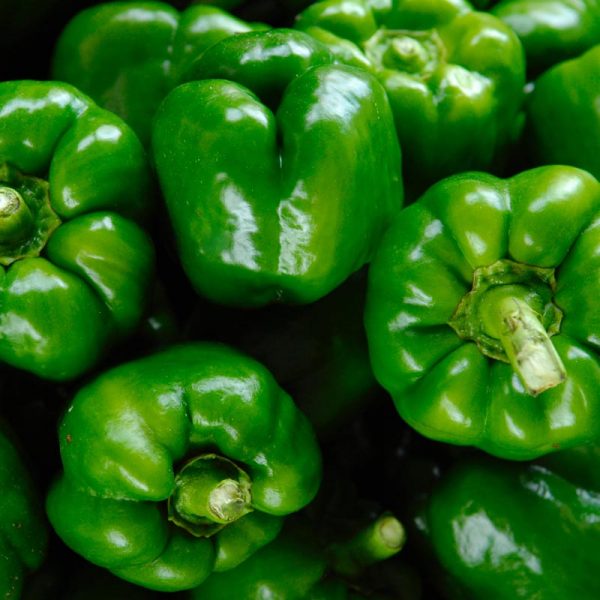Introduction:
Capsicum, commonly known as bell peppers or chili peppers, has been a staple in culinary traditions worldwide. Beyond its vibrant colors and pungent flavors, emerging research sheds light on the potential protective role of capsicum against cancer. This comprehensive exploration delves into the bioactive compounds within capsicum, their mechanisms of action, and the evolving scientific understanding of how this versatile vegetable may contribute to cancer prevention.
Nutrient Profile of Capsicum:
Capsicum is a nutritional powerhouse, rich in essential vitamins, minerals, and antioxidants. This section details the diverse nutrient profile of capsicum, emphasizing key components such as vitamin C, beta-carotene, and phytochemicals that play pivotal roles in cellular health and immune function.
Antioxidant Riches and Cellular Defense:
Capsicum’s vibrant colors signify the presence of potent antioxidants, including carotenoids, flavonoids, and vitamin C. Expounding on the significance of antioxidants, this part elucidates how these compounds combat oxidative stress, neutralize free radicals, and fortify cellular defense mechanisms, potentially thwarting cancer development.
Capsaicin and its Anti-Cancer Potential:
Capsaicin, the compound responsible for capsicum’s spiciness, has garnered attention for its potential anti-cancer properties. This section delves into the molecular mechanisms by which capsaicin may impede cancer cell growth, induce apoptosis, and disrupt angiogenesis, offering a nuanced understanding of its impact on cancer prevention.
Inflammation Modulation:
Chronic inflammation is a hallmark of many cancers, and capsicum exhibits anti-inflammatory properties. This part explores how capsicum’s bioactive compounds, particularly capsaicin, may modulate inflammatory pathways, potentially creating an environment less conducive to cancer initiation and progression.
Capsicum and Immune Enhancement:
A robust immune system is crucial for detecting and eliminating cancerous cells. Capsicum’s rich content of vitamin C, along with other immune-supportive nutrients, contributes to bolstering the body’s defense against infections and potentially cancer. This section elucidates the interplay between capsicum consumption and immune enhancement.
Phytochemical Synergy in Capsicum:
Capsicum contains a synergistic blend of phytochemicals, each with distinctive properties. This part investigates how these phytochemicals work together, potentially exerting a more significant impact on cancer prevention than individual compounds alone.
Capsicum Varieties and Cancer Protection:
Different varieties of capsicum exhibit varying levels of bioactive compounds. From sweet bell peppers to fiery chili peppers, this section explores how the choice of capsicum varieties may influence their protective potential against specific types of cancer.
Capsicum in Cancer Epidemiology:
Population studies and epidemiological research provide valuable insights into the association between capsicum consumption and cancer incidence. This part reviews key findings from epidemiological investigations, shedding light on trends and correlations that contribute to the evolving narrative of capsicum’s role in cancer prevention.
Culinary Incorporation and Practical Tips:
Integrating capsicum into daily meals can be a delicious and health-conscious choice. This section offers practical tips and creative recipes to inspire individuals to incorporate capsicum into their diets, ensuring a flavorful and cancer-conscious culinary experience.
Challenges and Considerations:
While capsicum shows promise in cancer prevention, certain considerations warrant attention. This part addresses challenges such as individual tolerance to capsaicin, potential gastrointestinal effects, and variations in dietary habits, providing insights on how to navigate these aspects while optimizing the health benefits of capsicum.
Capsicum and Specific Cancer Types:
Research indicates that capsicum’s protective effects may vary concerning specific cancer types. This section explores the current scientific understanding of how capsicum may influence the risk of breast cancer, prostate cancer, colorectal cancer, and other malignancies.
Future Research Directions:
The journey of uncovering capsicum’s potential in cancer prevention is ongoing. This section outlines potential avenues for future research, from exploring novel formulations to conducting clinical trials, with the aim of deepening our understanding of capsicum’s intricate relationship with cancer.
Conclusion:
Capsicum emerges as a compelling contender in the realm of cancer-preventive foods. Its array of bioactive compounds, antioxidant riches, and potential anti-cancer properties underscore its significance beyond culinary delight.
While ongoing research continues to unravel the complexities of capsicum’s impact on cancer prevention, the available evidence suggests that incorporating this versatile vegetable into a balanced diet may contribute to overall well-being and potentially offer protective effects against certain cancers. This comprehensive exploration aims to inspire individuals to embrace capsicum not only for its taste but also for its potential role in fortifying the body against the multifaceted challenge of cancer.
